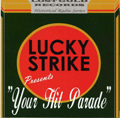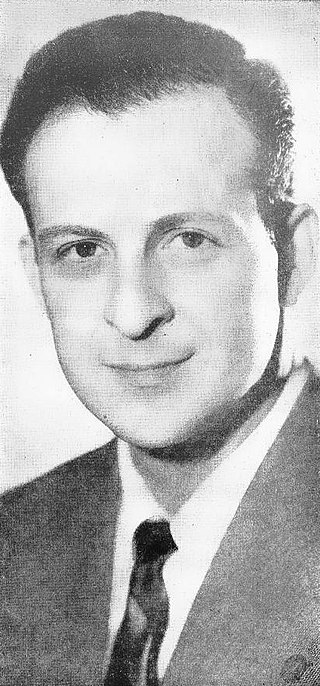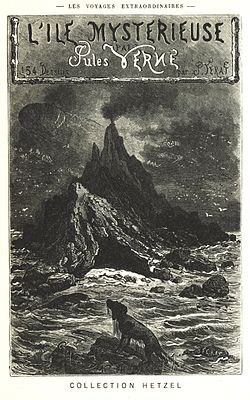The year 1958 in television involved some significant events. Below is a list of television-related events during 1958.

Your Hit Parade was an American radio and television music program that was broadcast from 1935 to 1953 on radio, and seen from 1950 to 1959 on television. It was sponsored by American Tobacco's Lucky Strike cigarettes. During its 24-year run, the show had 19 orchestra leaders and 52 singers or groups.
The New Adventures of Sherlock Holmes is a radio drama series which aired in the USA from 1939 to 1950, it ran for 374 episodes, with many of the later episodes considered lost media. The series was based on the Sherlock Holmes stories by Arthur Conan Doyle. Some of the surviving episode recordings may be found online, in various audio quality condition.

"The Adventure of the Speckled Band" is one of 56 short Sherlock Holmes stories written by Sir Arthur Conan Doyle, the eighth story of twelve in the collection The Adventures of Sherlock Holmes. It was originally published in Strand Magazine in February 1892.

The Adventures of Superman is a long-running radio serial that originally aired from 1940 to 1951 featuring the DC Comics character Superman.
"Buttons and Bows" is a popular song with music written by Jay Livingston and lyrics by Ray Evans. The song was published on February 25, 1948 by Famous Music Corp., New York. The song was written for and appeared in the Bob Hope and Jane Russell film The Paleface and won the Academy Award for Best Original Song. It was originally written with an Indian theme, but was changed when the director said that would not work in the movie. It was a vocal selection on many radio programs in late 1948. It was reprised in the sequel, Son of Paleface, by Roy Rogers, Jane Russell and Bob Hope. In 2004 it finished #87 in AFI's 100 Years...100 Songs survey of the top tunes in American cinema.

William Nettles Goodwin, was an American radio announcer and actor. He was for many years the announcer and a recurring character of the Burns and Allen radio program, and subsequently The George Burns and Gracie Allen Show on television from 1950–1951. Upon his departure, he was replaced by Harry von Zell.

Meet Corliss Archer is an American radio program from radio's Golden Age that ran from January 7, 1943, to September 30, 1956. Although it was CBS's answer to NBC's A Date with Judy, it was also broadcast by NBC in 1948 as a summer replacement for The Bob Hope Show. From October 3, 1952, to June 26, 1953, it aired on ABC, finally returning to CBS. Despite the program's long run, fewer than 24 episodes are known to exist.

The Adventures of Dick Cole was a 1940s comic book series, created by Bob Davis. It was published by Novelty Press, and later, Star Publications. Dick Cole is a heroic cadet at the fictional Farr Military Academy. The character was introduced in the "Origin of Dick Cole," in the first issue of Novelty Press' Blue Bolt Comics.

Blondie is a radio situation comedy adapted from the long-running Blondie comic strip by Chic Young. It stars Arthur Lake as Dagwood Bumstead and, for the majority of its run, Penny Singleton as Blondie Bumstead. The radio program ran on several networks from 1939 to 1950.
Americana is a weekly game show which ran on NBC from December 8, 1947, to July 4, 1949.
Fashions on Parade is an American fashion-themed television series that aired on the DuMont Television Network from November 4, 1948, to April 24, 1949, and on ABC from April 27, 1949, to June 29, 1949. The show was hosted by Adelaide Hawley.
Saturday Night Jamboree, also referred to as the NBC Jamboree, was an early American country music series on NBC-TV from December 4, 1948–July 2, 1949. The name was originally given to an NBC Saturday night radio show in the 1930s, which was broadcast on the WEAF station in New York City.

Barry Wood was an American singer and television producer. He is best known for being Frank Sinatra's immediate predecessor as the lead male vocalist on the long running NBC radio program Your Hit Parade.

Gene Autry's Melody Ranch is a Western variety radio show in the United States. A 15-minute pilot show aired on December 31, 1939. The program ran from January 7, 1940 to August 1, 1943, and from September 23, 1945 to May 16, 1956. The show's entire run was broadcast over the CBS radio network, sponsored by Doublemint gum. The approximately two-year interruption resulted from Autry's enlistment in the United States Army to serve in World War II. Initially titled Doublemint's Melody Ranch, the show's name was changed to Gene Autry's Melody Ranch in early 1941. Episodes were 30 minutes long except for a 15-minute version that ran from September 23, 1945 to June 16, 1946. The theme song was "Back in the Saddle Again".
The MGM Theater of the Air is a one-hour radio dramatic anthology in the United States. It was broadcast on WMGM in New York City and syndicated to other stations via electrical transcription October 14, 1949 – December 7, 1951. It was carried on Mutual January 5-December 27, 1952.

Bride and Groom is an old-time radio human-interest program in the United States. It was broadcast on ABC from November 26, 1945 to September 15, 1950. Each episode featured an engaged couple who would be married during the broadcast, then showered with gifts.

Call for Music is an old-time radio program in the United States. It was broadcast on CBS February 13 – April 16, 1948, and on NBC April 20 – June 29, 1948. The title was adapted from the sponsor's signature radio tag, "Call for Philip Morris."











